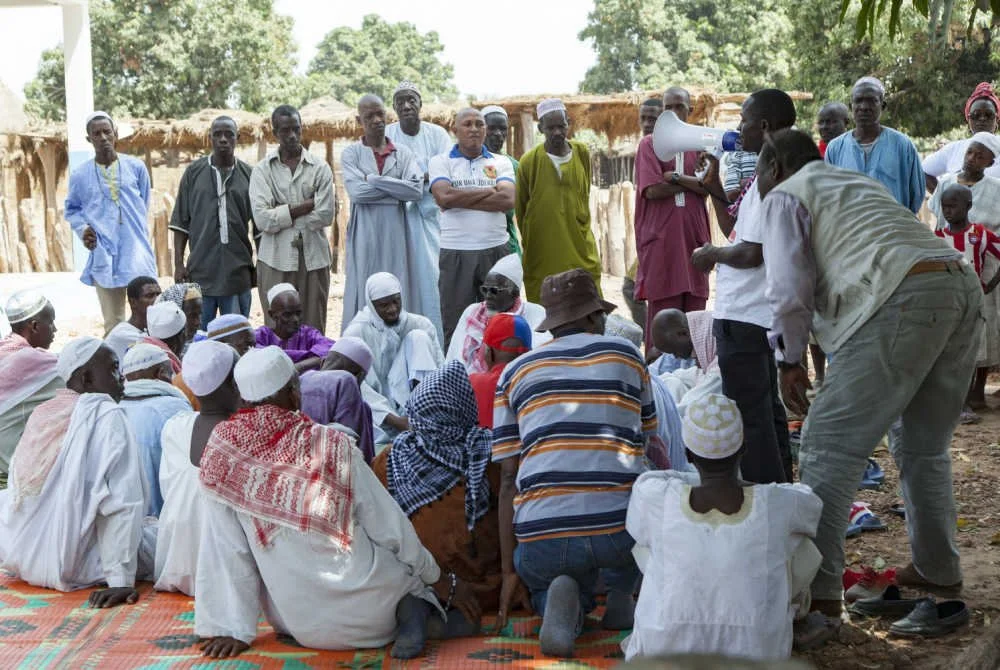The Gates Foundation Is Still Making Grants to Reinvent the Toilet
/toilets outside a hospital in ethiopia. photo: Clive Chilvers/shutterstock
In 2011, the Gates Foundation launched the Reinvent the Toilet Challenge to bring sustainable sanitation and hygiene solutions to the 2.5 billion people worldwide who do not have such access. The challenge, which is ongoing, is a global call to researchers around the world to develop innovative and financially profitable systems to manage human waste. The systems must operate off-grid, cost less than $.05 per day, and function in poor, urban settings.
So why reinvent toilets? They work just fine, do they not? The simple answer is yes, toilets do their jobs efficiently in developed countries. It’s a different story in poor countries.
The familiar toilets that people in the developed world take for granted are unsuited to many parts of poor countries because of a lack of plumbing and waterworks infrastructure, or the resources to develop and maintain that infrastructure. This leaves 2.5 billion people to use pit latrines or practice open defecation—which, by the way, not only leads to disease, but exposes women and girls to an increased risk of violence. In theory, pit latrines are viable sanitation solutions. In real life, however, the cost to empty the latrines is unaffordable for many families, and when they are emptied, raw sewage is often dumped into nearby waterways and ponds, polluting the surface water. And the potential for these makeshift toilets to contaminate the groundwater is high.
Toilets and human waste aren’t topics that get much attention in the media, or even within the philanthropy world. In fact, the last time I remember water, sanitation and hygiene (WASH) matters getting the attention of mainstream media outlets was in 2015, when Bill Gates shared a video of himself drinking a glass of water from the Janicki Omni Processor (JOP). In simple terms, the JOP converts human waste into water, electricity and ash. Gates recorded a video in which he downed a glass of JOP water and posted it online. While this made him the butt of many a joke, clean water is certainly no laughing matter.
Around 88 percent of diarrheal illnesses worldwide are due to unsafe water and poor sanitation and hygiene. Diarrheal diseases are the second leading cause of death for children under the age of five and kill more kids than AIDS, malaria and measles combined. Such grim statistics captured the Gateses' attention years ago, and the Gates Foundation continues to back WASH enterprises that can potentially crack this particular global health challenge. Its most recent investment in this area involves researchers at Duke University.
Duke, along with its partners RTI International, Colorado State University and “several evolving partnerships” received two grants totaling $10.7 million to implement phase three of their Reinvent the Toilet project. Most this money, $7 million, is funding further development of an off-grid, energy-neutral sanitation system led by Brian Stoner, a Duke-RTI scholar and Duke electrical and computer engineering professor Jeff Glass. The project is currently undergoing testing in India. (You can read more about the work of Stoner and RTI here.)
Gates is awarding the remaining $3.7 million over the course of two years toward the establishment of a new Sanitation Technology Cluster at the university. The cluster will bring together faculty members from Duke’s Global Health Institute, the Sanford School of Public Policy, Pratt School of Engineering and the Innovation and Entrepreneurship Initiative. The cluster will research and develop technologies to fill gaps in WASH with projects such as high-efficiency combustion ecology using human waste to safely dispose of and treat menstrual waste.
The Gates Foundations has awarded other grants this year for toilet innovation. In March, for example, it gave $1 million to Kohler—a leading U.S. manufacturer of toilets and other bathroom supplies—for work to test so-called closed-loop toilets in poor countries. Kohler, which also received a Gates grant in 2014, describes these toilets as "stand-alone units that take in wastewater, then disinfect and purify it to be reused for toilet flushing."
Developing and scaling new toilet technology that can reach several billion people is a huge global development challenge. But the Gates Foundation has stuck with this work for good reasons; gains on WASH have already saved many lives. In 2000, around 1.2 million kids died from diarrheal diseases. By 2015, that number dropped to 525,000.
Access to safe hygiene and sanitation solutions also has high potential to keep girls in school. According to Brian Stoner, around 25 percent of girls drop out of school because they don’t have access to bathrooms or safe places to dispose of their menstrual hygiene products. Jeff Glass also noted that every $1 invested in WASH generally returns around $5 in benefits such as higher work productivity, lower health costs and fewer missed work days.
Related:







































